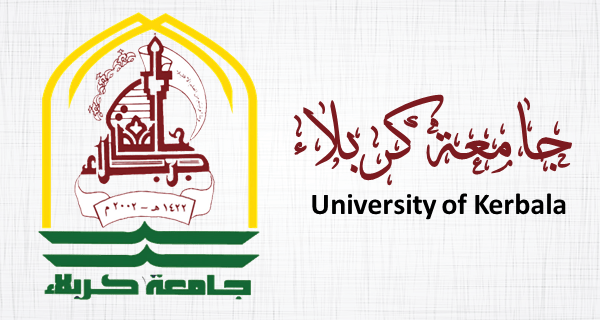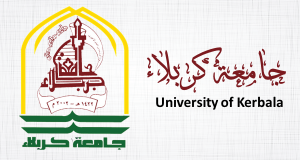Asst.Prof.Dr.Aysar Ashour Khalaf
University of Kerbala/Faculty of education for pure science/ Biology department
Sustainable development is a global concept that includes economic, social, and environmental aspects, where meeting the needs of the present generation is a prerequisite without sacrificing or harming the ability of future generations to meet their needs. Universities play a significant role in achieving the goals of sustainable development; they are considered globally key institutions in the production and development of scientific, technological, and social knowledge, and they contribute to disseminating this knowledge among future generations and preparing graduates and responsible citizens capable of meeting the needs of different sectors1.
Education and its issues have become vital topics that deserve research and study, especially in the context of higher education institutions that play a significant role in achieving sustainable development. Many international initiatives have emphasized this, such as the Kyoto Declaration in 1993 and the Talloires Declaration in 1990, where universities are seen as scientific and academic institutions that provide the labor market with specializations and human resources for the requirements of sustainable development in society. They are ideal places for promoting sustainable development and developing wide-scale projects. Tee & Symaco (2019) pointed out that higher education institutions play a vital role in supporting sustainable development by providing and developing the necessary human capital for this process. The importance of these institutions is increasing under government policies that focus on enhancing their role in promoting social, economic, and environmental development. Therefore, higher education institutions, as centers of knowledge and sources of human capital, are tasked with developing and enhancing their function and role in achieving active and effective educational engagement with the community, promoting democratic participation, and providing learning opportunities for all segments of society. This responsibility requires achieving comprehensive sustainable development goals by providing an environment that encourages democratic participation and developing students’ skills in community building and problem-solving. Universities can also link scientific research to the needs of productive and service sectors by allocating spaces for industrial companies and institutions within the campus, which enhances collaboration to study problems and provide appropriate solutions.2
The concept includes meeting the needs of the current generations without harming or endangering the ability of future generations to meet their needs. This is achieved through balancing three main aspects: the economic, environmental, and social aspects. In the World Summit on Sustainable Development in 2002, the Summit Conference for Millennium Development Goals in 2010, and the “Rio+20” Conference in 2012, the Sustainable Development Goals for 2030 were established by a committee formed by UN member states. The final version of these goals was agreed upon in July 2014, and they include:3
– Eradicating poverty – Ending hunger and promoting sustainable agriculture – Ensuring good health and well-being for all – Achieving gender equality – Providing quality and comprehensive education – Providing sustainable energy services for all at affordable prices – Ensuring availability of water and sanitation – Building resilient infrastructure and promoting innovation – Promoting comprehensive economic growth and providing employment opportunities – Enhancing safe, resilient, and sustainable human settlements – Reducing inequality within and between countries – Ensuring sustainable consumption and production patterns – Taking urgent action to address climate change – Preserving oceans and marine resources and using them sustainably – Protecting terrestrial ecosystems, managing forests, combating desertification, and conserving biodiversity – Promoting peaceful and inclusive societies, providing justice, and building effective institutions – Enhancing global partnerships for sustainable development.
Recommendations: We need to increase awareness of sustainable development concepts by regularly organizing training workshops, developmental courses, and awareness seminars. It is also essential to introduce educational courses for primary and postgraduate stages according to specializations to increase awareness of sustainable development concepts and enhance partnerships with organizations involved in sustainable development, as this significantly impacts achieving sustainable development goals. One of the main challenges is to increase financial support for sustainable projects within the university, encourage both students and faculty members through financial and moral incentives, and support research related to sustainability. Also, developing an annual plan that includes educational, research, and teaching campaigns regarding sustainable development and having senior university officials responsible for managing it in collaboration with specialized faculty members and administrators with experience in this field will contribute to the development of this area.4
Complete Sustainability in Different Disciplines means integrating the principles and concepts of sustainable development into all academic programs, making awareness of sustainability an essential part of academic education. Below are some examples of how to achieve this across various disciplines:
1. Engineering
2. Business Administration
3. Environmental Sciences and Biology
4. Education
5. Arts and Humanities
6. Social Sciences
7. Public Health
8. Law
Commercial Law: Study contracts and policies that encourage companies to adopt sustainable practices.
References:
1-Symaco, L. P., & Tee, M. Y. (2019). Social responsibility and engagement in higher education: Case of the ASEAN. International Journal of Educational Development, 66, 184-192.
2-Calder, W. and Dautremont-Smith, J. (2009), “Higher education: more and more laboratories for inventing a sustainable future”, in Dernbach, J (Ed.) Agenda for a Sustainable America,
Environmental Law Institute, pp. 93-107.
3- United Nations,” sustainable development goals..17 Goals to transform our world”,
http://www.un.org/sustainabledevelopment
4-Symaco, L.P., (2012). Higher education in the Philippines and Malaysia: the learning region in the age of knowledge-based societies. J. Int. Compar. Educ. 1 (1), 40–51.
5- Khalaf,A.A.(2024). Sustainable development in educational and academic contexts: concepts and challenges.





























































